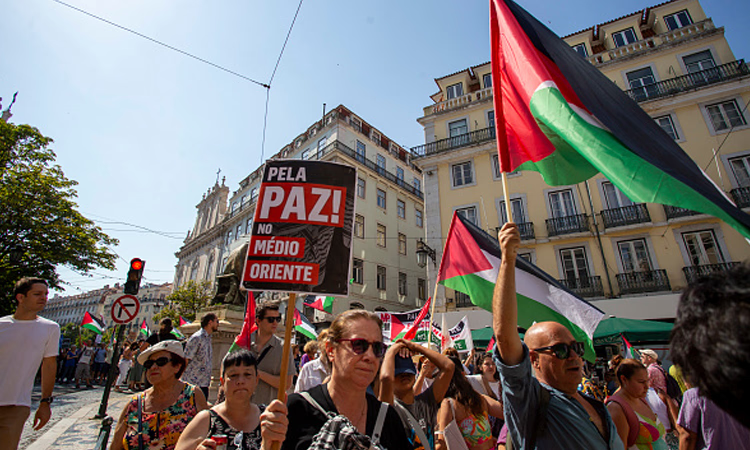
UK, Canada, and Australia Recognize Palestinian State, Deepening Global Diplomatic Rifts
Britain, Canada, and Australia announced on Sunday their formal recognition of Palestinian statehood, a move that has intensified diplomatic pressure on Israel and heightened global tensions.
21 sept 2025 - 20:28 • 3 min read
In a significant shift on the international stage, the United Kingdom, Canada, and Australia formally recognized Palestinian statehood on Sunday, a move that deepens diplomatic rifts and places them at odds with the Trump administration.
The coordinated announcements came on the eve of the annual gathering of the United Nations General Assembly in New York, where France and Portugal have also pledged to vote for Palestinian statehood recognition. This collective action by nations across three continents signals growing international pressure on Israeli Prime Minister Benjamin Netanyahu and signals a potential fracturing of alliances with the United States.
British Prime Minister Keir Starmer stated that the recognition was aimed at "reviving the hope of peace and a two-state solution." Canada's Prime Minister Mark Carney accused the Israeli government of actively hindering the establishment of a Palestinian state, while Australian Prime Minister Anthony Albanese emphasized that a two-state solution remains the "only path to enduring peace and security."
However, these recognitions are largely symbolic and have not yet curbed Israel's military campaign in Gaza, which has resulted in tens of thousands of casualties and widespread destruction. The prospect of a viable Palestinian state remains elusive, with occupied and blockaded territories presenting significant challenges.
Israel's reaction has been strong, with Prime Minister Netanyahu vowing to retaliate after his visit to the UN. He has repeatedly stated, "There will be no Palestinian state." Nationalist ministers within his government have floated plans for the annexation of large swathes of the West Bank, a move that would further alienate Arab nations and potentially destabilize regional diplomatic efforts, including the Abraham Accords.
The United States, a key ally of Israel, has expressed concern over the timing of these recognitions, with some Republican lawmakers warning that such actions could put countries at odds with U.S. policy. The potential Israeli response, including annexation, could imperil ongoing U.S.-brokered initiatives.
Meanwhile, the humanitarian crisis in Gaza continues. The Palestinian Ministry of Health reports over 65,000 deaths and more than 166,000 injuries due to the ongoing Israeli offensive. Aid organizations continue to highlight the dire conditions within the enclave, with widespread displacement and lack of essential resources.
In a statement, Hamas welcomed the recognition as a "step towards affirming the right of our Palestinian people to their land and holy sites." However, they also urged for practical measures to end the war in Gaza and counter annexation projects in the West Bank and Jerusalem.
The Vatican, through Pope Leo XIV, called for an end to violence, stating, "There is no future based on violence, forced exile, or revenge." He expressed solidarity with the suffering population of Gaza and advocated for a negotiated diplomatic solution and respect for international humanitarian law.
The situation remains tense, with ongoing military operations in Gaza and escalating diplomatic exchanges worldwide. The upcoming UN General Assembly is expected to be a focal point for discussions on these critical issues.